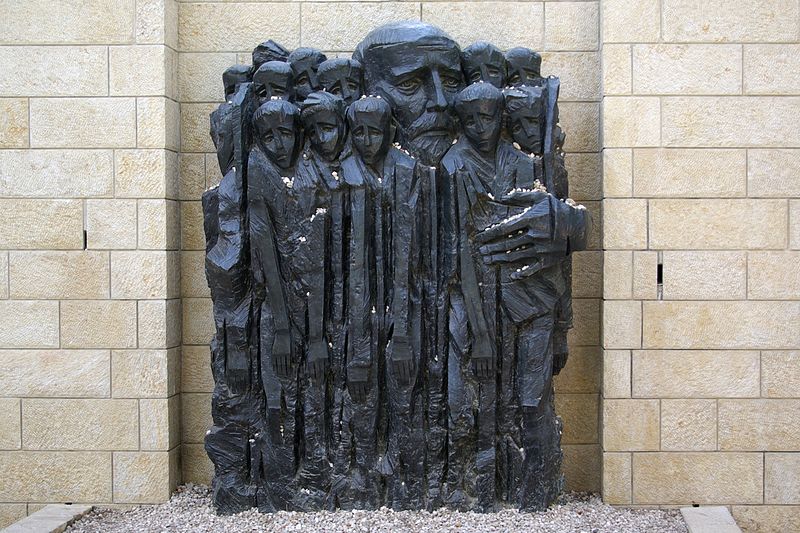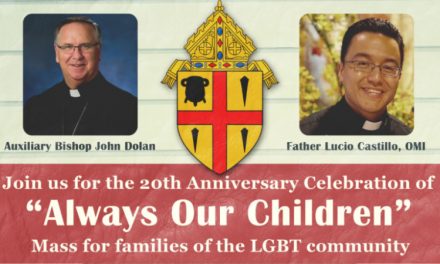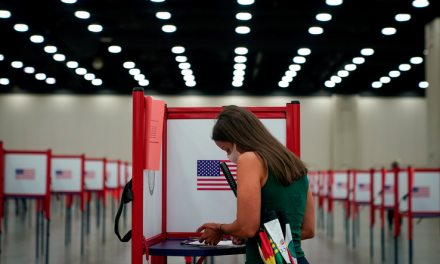It is entirely too easy to dismiss as irrational the recent comments from Mike Huckabee when he asked why “we should ‘be so surprised’ at the violence when ‘we have systematically removed God from our schools,'” or the more inflammatory remarks by the now infamous members of Westboro Baptist Church, who “sing praise to God for the glory of his work in executing his judgment” upon Connecticut for passing new same-sex marriage legislation. Of course, these comments are absurd, and should be consistently challenged and even shamed in the public square. But there is a deeper, more theological, issue at stake in these kinds of public comments. They are not simply irrational (although they are that); I would go further and say they are blasphemous. That is, they speak about God in a Biblically and theologically untruthful manner, and what is worse, they do this amidst innocent human suffering, pouring salt upon our collective wounds over the unnecessary loss of life.
In his commentary upon the book of Job, Gustavo Gutierrez suggests that the main question of the book is “how to speak about God amidst innocent suffering?” At the end of the book, God speaks directly to the three friends who have come to comfort Job, but who have insisted that he must have done something to deserve God’s punishing wrath (Gutierrez calls this a “theology of retribution”), while throughout the book Job maintains his innocence and demands, pleads, and argues with God for an account of why his unjust suffering is occurring. Here is God’s response to Job’s friends: “My wrath is kindled against you and against your two friends; for you have not spoken of me what is right, as my servant Job has” (Job 42:7).
A theologically and Biblically appropriate answer to the leaders of Westboro is that they deeply misunderstand the nature of God, for God is with Job – and with the people of Connecticut and everyone else in the world suffering from this tragedy – not condemning them. And to be fair to Mike Huckabee, his comments are of a slightly different nature than those of Westboro. In defense of his remarks, he clarifies that he is not claiming that God is directly punishing anyone in particular for removing God from public schools, but rather that removing God-talk from our public discourse creates a different kind of social and moral atmosphere where violence is more likely. But even this slightly more nuanced response is theologically inadequate, because it assumes that the answer to the problem of 19 mass murders in the last five years – let me say that again, 19 mass murders in the last five years – is as simple as believing in God and changing how we talk about religion in the public.
Which leads me to my second point. Claiming that we all just need more faith and more talk of God in the public is just one more way to create an opaque veneer over the kinds of difficult social, economic, and political questions that this shooting is finally challenging us to ask as Americans and about our culture. I do not for a minute believe that anyone in this country who owns a gun, or who supports the NRA, or even who manufacture weapons and pay lobbyists to advocate for less gun restructions wanted anything like this to happen. I am not going to go the easy route of pointing fingers out of anger. In fact, I look forward to the comments tomorrow from the NRA and I hope they will join in this discussion with constructive proposals.
At the same time, however, we cannot deny that the manufacturers of weapons and munitions that are designed to kill human beings have directly influenced our gun control laws. As my former professor at Notre Dame, Todd Whitmore, pointed out in a recent Facebook post, we as a society have deemed through our legal system that someone serving alcohol at a bar can be held legally accountable if they knowingly serve someone who becomes intoxicated and proceeds to kill someone in a drunk-driving accident. Similarly, through a long series of public and legal battles, cigarette companies have been held accountable for the damage that their products knowingly cause to those who legally and of their own free will purchase them and use them. In terms of assessing the degree of complicity in providing products that are perfectly legal but are known to cause direct public harm, weapons manufacturers are certainly at least as responsible, and likely more responsible, as those who sell liquor or cigarettes.
Let me bring this back into the realm of Catholic moral theology. Catholic social thought upholds that a just society requires the delicate balancing of both individual and corporate rights and of the common good. In fact, it is fundamental to the common good that certain basic, natural human rights be protected through appropriate legislation, enforcement, and the backing of the judicial system. However, rights alone do not make a just society. Rights must consistently be contextualized within the complex social structures and systems that we all live in the late modern world. Therefore, when the claims of my individual rights, or the corporate rights of an organization to which I belong, begin to infringe upon the rights of others or of the common good as a whole, we have reached the limits of rights language and must begin to speak of my responsibilities toward the greater good. The challenge is to identify and name that point where even legitimate rights go too far and they begin to impinge upon the well-being of the entire community as a whole. Very few people (though there are some) are challenging our second amendment constitutional rights to bear arms, any more than I think we should outlaw cigarettes or alcohol. But it is time to recognize that our gun laws are shaped by one of the most powerful lobbying institutions in our nation; that is, the gun lobby, and that their rights-based claims to provide our society with a steady stream of weapons and munitions designed, created, and intended to kill human beings is destructive of the common good, and of the rights of every other American to live in safety.
Grief and anger are natural reactions to this most recent shooting. In fact, just again this morning I was brought to tears over another story I heard on NPR about a young girl who spoke for the first time since the shooting while she was petting a therapy dog that had been brought to Newtown. And I believe there are many possibilities for hopeful and necessary change that can arise from the collective sense of mourning and anger that we feel as a nation and as a world. I have suggested two here. First, let us learn to speak truthfully about God amidst this senseless suffering – God is present amidst it, not an agent of it. Secondly, I believe that this shooting has pushed us toward a tipping point in our culture where we recognize that there is not an unlimited right to manufacture, buy, sell, own, exchange, and profit off of, weapons that facilitate the rapid destruction of human life. It won’t be easy to go against the gun lobby or to change our current legislation and practices, but our collective safety and the common good of our nation demand it.






What a wise and thoughtful post; I am grateful. And your post also reminds me of why theology is so important, but so often overlooked or “managed.” In any case – thank you.
God actually does mass punishments in the Bible and after the Bible in 70 A.D. against Jerusalem but it has a unique requirement: that in God’s eyes the sins of that group are complete…filled up. The opposite occurred in Job: he was blameless and Satan wished to “punish” that goodness out of him. But Christ predicted Jerusalem would be destroyed because the Jewish leaders were completing the sins of Israel and Judea: Mt.23:31 “Thus you bear witness against yourselves that you are the children of those who murdered the prophets; 32 now FILL UP what your ancestors measured out!”. Christ’s “fill up” parallels God’s words to Abraham regarding the Canaanites who will receive mass dooms from God but only 400 years into the future when their sins are filled up:
Gen.15:16: ” …for the wickedness of the Amorites is not yet complete”. So God does mass punishments but based on a standard that is completely outside the knowledge of mankind: when a group’s sins are filled up or complete. Little children taken in such events of God are blameless and I think speeded through this temporary trial into Heaven. I’ve never seen a Catholic author mention those killed in Jerusalem. They simply mentioned how correct Christ was that the temple would be destroyed. But Tacitus has 600,000 people being killed also and Josephus has 1.1 million being killed along with the temple being destroyed in 70 AD and Christ predicted both due to
the sins being filled up and therefore the Jewish adults not recognizing the time of their visitation:
Luke 19:41 NAB Bible
As he drew near, he saw the city and wept over it,
42
saying, “If this day you only knew what makes for peace—but now it is hidden from your eyes.
43
* For the days are coming upon you when your enemies will raise a palisade against you; they will encircle you and hem you in on all sides.
44
They will smash you to the ground and your children within you, and they will not leave one stone upon another within you because you did not recognize the time of your visitation.”
All this is inapplicable to Newtown or to Columbine or to Hiroshima or to the Nazi holocaust because the Biblical mass punishments had a standard known only to God: completeness of sins.
God did not kill through others the Amorites after 50 years of child sacrifice nor after 250 years of child sacrifice and idolatry. He did it only when in His eyes they had resisted all His lighter punishments and calls to repentance that He gave them for four hundred years as per Wisdom 12:10 ” But condemning them bit by bit, you gave them space for repentance.” Likewise with the Jews who repeatedly flirted with Baal worship for centuries, God exiled them rather than killed them
and appealed to them through the prophets. Jerusalem in 70 AD was after centuries of appeals by God.
Thank you for this very thoughtful and theological insight on this dilemma. I completely agree with you that we need to recognize where God is in these tragic situations, and that we need to approach the issue with a proper balance between maintaining rights and protecting the common good.
On the other hand, I think it is incredibly important that, if we are to truly work toward the common good, we need to approach the topic of gun control with open minds – to truly look at all the facts – and to be willing to have our minds changed. That being said, I think it is easy to blame guns or a lack of gun laws. But, I’m not yet convinced that more restrictive gun laws is the answer.
I don’t own a gun, nor do I ever plan on purchasing one, so I really don’t have a “side” (that is, being for more gun laws or being against). In fact, one of the 19 mass murders you spoke of took place in my home town only 3 blocks from my house (I grew up in Kirkwood MO), so this is an issue that literally hits close to home. My only side is, like you, wanting to do what we can to protect the common good while reasonably maintaining individual rights. I’ve looked at arguments from both sides, and at best, it is unclear if more restrictive gun laws would actually protect society.
For example, Connecticut has some of the strictest gun laws in the country. And, it seems that most of the mass murders occur in gun-free zones. I don’t know what the answer is, but I think in addition to being open to discussing if greater gun restriction would help, we also need to be open to the possibility that the greater good might be better protected with fewer gun restrictions.
These weapons exist and are out there. If there were only a handful of them out there, I’d be happy to criminalize them because I believe we could actually confiscate the majority of them. But, the guns are out there; we can’t un-invent them; and we cannot expect criminals or those set on committing mass destruction to follow laws.
I really am happy to discuss the possibility that more restrictive gun laws could reduce the number of mass killings. I just think that blaming guns or gun culture is easy, and I’m not yet convinced that it will actually help. I agree, we should be willing to reasonably balance individual rights with the protection of the common good. I just don’t know that greater gun control will actually do that.